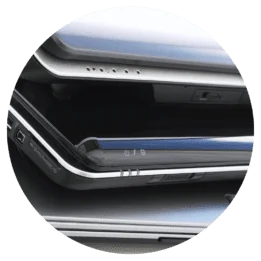

It is more important than ever to tackle the issue of digital exclusion. Around 10 million people in the UK lack the most basic digital skills and, as the COVID-19 pandemic highlighted, this can impact their physical health, education, work, mental wellbeing and life chances in general.
Here at the London Office of Technology and Innovation (LOTI), we specialise in helping London boroughs work together to bring the best of digital and data innovation to improve public services and outcomes for Londoners. Device upcycling is one of several areas that LOTI is exploring as part of the Digital Inclusion Innovation Programme (DIIP). The DIIP supports the delivery of the London Recovery Board’s Digital Access for All Mission whose goal is for “Every Londoner to have access to good connectivity, basic digital skills and the device or support they need to be online by 2025”.
As LOTI’s review of Digital Inclusion in London reveals, one of the six key challenges is meeting the scale of need for devices (sometimes referred to as ‘device poverty’). Hundreds of organisations across London, including councils and voluntary and community sector (VCS) organisations, are already working to tackle digital exclusion, including lack of access to devices, but it is an enormous task. In Tower Hamlets alone, for example, 10,000 children are in need of a device to support them with their school work.
One way that London councils can help is by upcycling retired digital devices – either from their own IT assets or from donor organisations and individuals – and giving them to local residents. LOTI believes that the number of digital devices available to digitally excluded people in London could be significantly increased if the barriers to upcycling devices (also known as ‘recycling’ or ‘refurbishing’ devices) are reduced. It has conducted in-depth research into this topic, including:
In this guide, LOTI takes key learnings from current device upcycling schemes (in particular, a pilot conducted with a public sector organisation in autumn 2021) and provides advice for London councils and other organisations that wish to set up similar schemes. Please note, the recommendations in this guide are not exhaustive. As you might decide to work with a partner organisation to help data wipe, refurbish and distribute the devices, LOTI has also created a list of upcycling service providers, which includes costs and minimum requirements for devices. These organisations have not been vetted by LOTI but should be a good starting point for your own research.
One council officer told LOTI that “people know they have to deliver digital inclusion but there’s no funding to go with it”. If you have a limited budget for digital inclusion initiatives in your borough, a device upcycling scheme could be a good option and could also support your organisation’s green credentials. We hope you find this guide and our other LOTI guides about lending and gifting devices and sourcing digital devices useful.